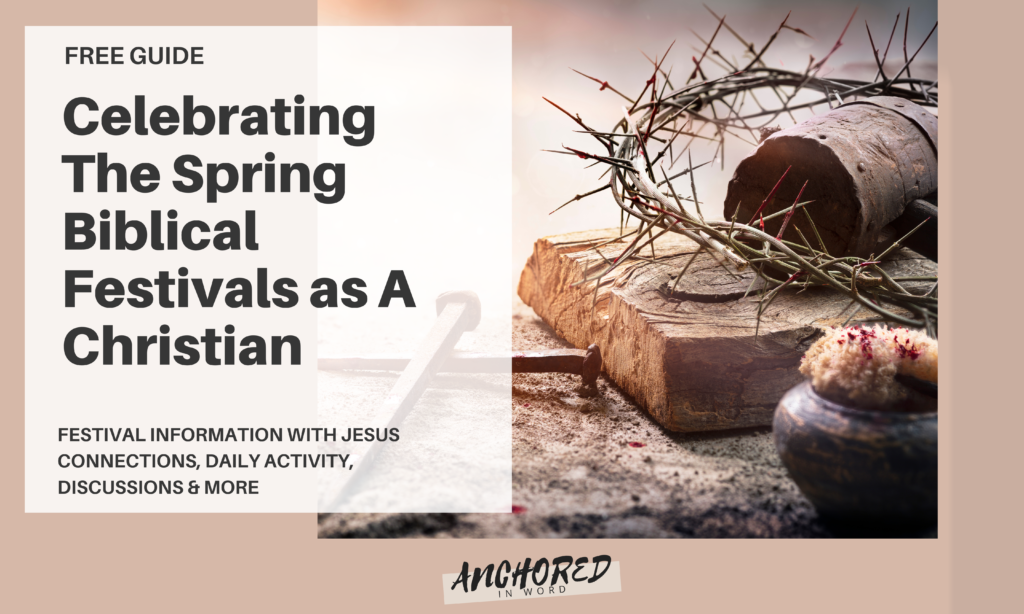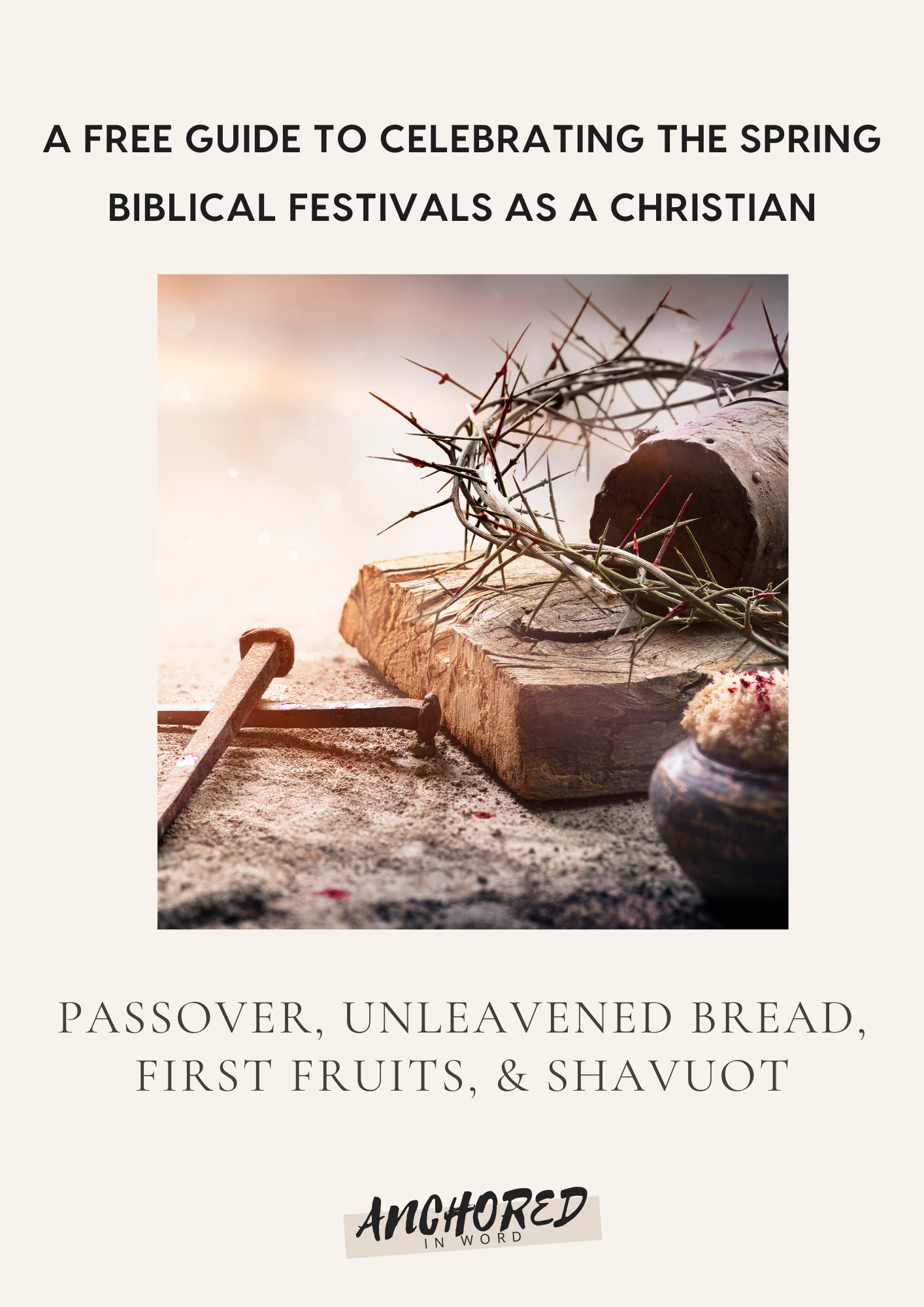
The Spring Biblical Festivals are a joy to celebrate in the light of the Gospel and as Bible believers we get to enjoy them that more because we personally know the WHO the festivals speak about. The Passover, Unleavened Bread, and The Resurrection are three significant religious holidays celebrated by millions of people worldwide. While they seem to be different, we cannot separate them. This trio is significant to our Christian belief, because it refers to Christ’s death, burial and resurrection. It also speaks of three stages of salvation: justification, sanctification, and glorification.
The Spring Biblical Festival Passover
The Biblical Festival, Passover, which is commanded to the Jews to celebrate, commemorates God’s Deliverance of Israel Out of Egypt Pesach (PAY-sahk) means to “pass over.” The Lord sent Moses to lead the children of Israel from Egypt to the Promised Land. When first confronted by Moses, Pharaoh refused to let the people go.
After sending nine plagues, the Lord said the firstborn males of every house would die unless the doorframe of that house was covered with the blood of a perfect lamb. That night, the Lord “passed over” the homes with blood on the doorframes. The tenth plague brought death to the firstborn sons of Egypt, even taking the life of Pharaoh’s own son. Finally, Pharaoh let the children of Israel go. Passover was to be a lasting ordinance for generations to come.
The Spring Biblical Festival Unleavened Bread
The Biblical Festival, Unleavened Bread on the other hand, Leviticus 23, Hag HaMatzot (Hawg Hah-MAHT-zot) or Hag HaMatzah, also known as the “Feast of Unleavened Bread,” is mentioned as a separate feast on the fifteenth day of the same month as Passover. Today, however, the feasts of Pesach, Unleavened Bread, and Firstfruits have all been incorporated into the celebration of Passover, and reference to Passover means all three feasts. Passover is celebrated for seven days, 14-21 Nisan.
The Lord said that for seven days the children of Israel must eat unleavened bread. This bread, made in a hurry without yeast, represents how the Lord brought the Israelites out of Egypt in haste. In Scripture, leaven also represents sin. Today, cleansing the house before Passover is often a symbolic search to remove any hypocrisy or wickedness.
The Spring Biblical Festival First fruits & Pentecost (Shavout)
The Biblical Festival First fruits offerings are Given for the Spring Barley Harvest. On Reishit (Re-SHEET) people offered the first ripe sheaf (first fruits) of barley to the Lord as an act of dedicating the harvest to him. On Passover, a marked sheaf of grain was bundled and left standing in the field. On the next day, the first day of Unleavened Bread, the sheaf was cut and prepared for the offering on the third day. On this third day, Reishit, the priest waved the sheaf before the Lord.
Jewish people rarely celebrate Reishit today, but it has great significance for followers of Jesus as the most important day of the year, the day of Jesus’ resurrection. Then Omer counting (the harvest gathered to dry for first fruits) then begins until the day after the seventh Sabbath, the 50th day, which is The Biblical Festival called Shavuot or Pentecost (the next feast on the calendar).
In this guide you will receive an explanation for each Biblical festival and their connection to Yeshua (Jesus). How they are foreshadows of what was fulfilled by Christ’s death, burial, and resurrection.
What it includes:
- Festival information
- Passages for Recitation
- Daily Guidance for Celebrating
- Questions for Family Discussions
- Songs
- Dessert Recipe
- Passover Meal

Celebrating The Spring Biblical Festivals as a Christian
Send download link to:
I pray this guide blesses you and makes it easy for you to celebrate the fulfillment of these festivals with your family. If you are interested in more resources like this, download our FREE Matthew Study Guide, here.
Be blessed in all you do! -Anda